Top Freshdesk alternatives for businesses
What is Freshdesk?
Freshdesk is a cloud-based customer service and help desk platform. It lets users submit customer service requests and tickets, and helps your customer support agents solve them as quickly as possible.
Its Helpdesk software replaces more informal customer support tools like spreadsheets, emails, or paper notes. It’s a useful addition as businesses grow and their customer support needs become more complicated. A single Helpdesk solution can streamline the complexity of adding multiple levels of support, designated product and feature experts, and multiple support channels.
Freshdesk plans and pricing
Note: All pricing listed below is for monthly plans. Most platforms, including Freshdesk, offer a 20 and 35 percent discount for annual commitments.
- Free: $0 per agent per month for up to two agents. Includes ticket management, shared inbox, and conversation threads with tasks.
- Growth: $15 per agent per month. Unlimited agents, adds customer portal to free plan features.
- Pro: $49 per agent per month. The Growth plan, plus multilingual conversations and up to 5,000 collaborators, along with advanced features like SLAs and AI.
- Enterprise: $79 per agent per month. The Pro plan, plus more advanced enterprise management and security features.
In addition to each plan’s available features, Freshdesk offers extras with individual costs like AI assistants and “Day Passes” for additional agents.
Freshdesk key features
Freshdesk’s basic features include shared tickets and inboxes for agents, support conversation threads, and assigned tasks.
Higher-tier plans provide additional features like multilingual conversations, non-agent collaborator access, AI assistants, and analytics.
The most expensive plan offers user self-service features like forums and knowledge bases, as well as advanced management and scheduling tools.
Freshdesk G2 rating
Beyond considering a solution’s available features, it’s important to also take stock of user feedback. Thankfully, Freshdesk is widely reviewed on G2, a popular software review platform. Freshdesk has a rating of 4.4 out of 5 stars on the site, indicating a largely positive experience among its user base.
Pro Tip
Optimize customer service with Jotform AI Agents by automating responses, personalizing interactions, and ensuring 24/7 availability—enhancing efficiency while delivering seamless support experiences.
Why should you look for a Freshdesk alternative?
Not every tool is right for every job, and Freshdesk is no exception. There are a few good reasons why companies might look for a Freshdesk alternative:
- The large price jump between lower-tier (Free/Growth) and higher-tier plans might be too expensive for some customers.
- Many of the most powerful features are locked behind the more expensive plans.
- Smaller businesses may feel overwhelmed by the amount of available features, options, and integrations.
- The training and onboarding required to take advantage of Freshdesk’s features may be overwhelming for new users.
- Some customers are not satisfied with the user interface (UI).
What are the top Freshdesk alternatives?
| Name | Key features | Pricing |
|---|---|---|
| Jotform | Form builder, NPS surveys, conditional logic, reporting tools | Free for five forms |
| Zendesk | Multichannel support, customizable workflows, self-service portals, AI automations | Starting at $55/agent |
| Zoho Desk | Context-aware ticketing, multichannel support, AI insights, knowledge base | Starting at $7/agent |
| Intercom | Conversational messaging, chatbots, AI insights, engagement tools | Starting at $29/seat |
| Salesforce Service Cloud | Unified CRM view, AI insights, omnichannel support, advanced reporting | Starting at $25/user |
| HappyFox | Multichannel support, SLAs, self-service portals, reporting tools | Starting at $9/agent |
| HubSpot Service Hub | Integrated CRM, ticketing, automation, customer surveys | Starting at $15/seat |
| Front | Collaborative inbox, automation, AI ticket routing, analytics | Starting at $19/seat |
| Help Scout | Shared inbox, collision detection, knowledge base, customer surveys | Starting at $50/user |
| LiveAgent | Omnichannel support, ticketing, call center, live chat | Starting at $15/agent |
| Kayako | Unified conversations, omnichannel support, AI routing, self-service portal | Starting at $39/agent |
| Jira Service Management | ITSM workflows, asset management, collaboration tools, automation | Free for up to three agents |
1. Jotform
Starting off our list with a strong Freshdesk alternative, Jotform‘s suite of products makes customer service easy for businesses of all sizes without needing to learn an entirely new system.
With intuitive and easy-to-build forms, Jotform can be used to collect feedback and service tickets, and automate survey collection. You can also use this tool to notify customers and support agents when tickets are submitted or responded to, and leverage the report builder to gather valuable business insights and data about the kinds of issues customers are experiencing and how well your team responds to them.
With the wide range of integrations available with Jotform, companies can either build their own perfect help desk system or use Jotform in tandem with one of the other options on this list for an easy, seamless experience.
Key features:
- Form building for customer interactions. Create forms for registering new prospects, collecting customer feedback, offering discounts, and more.
- Net Promoter Score® (NPS®) survey builder. Build and distribute NPS surveys to measure customer satisfaction and loyalty. Surveys are accessible across devices.
- Conditional logic. Automate surveys and notifications triggered by specific customer service interactions, such as support requests or complaints.
- Automated email notifications. Automatically send email confirmations or alerts when forms are submitted.
- Jotform Report Builder. Generate actionable reports from form submissions to monitor common issues, service resolution times, and customer trends.
- Integrations. Seamlessly integrate with CRM tools and Freshdesk via Zapier to streamline ticket processing from online forms to your help desk.
Pros: Customizable forms and workflows for diverse needs, easy-to-use interface, robust automation and integration options like Freshdesk and other CRMs, real-time insights and reporting
Cons: Limited advanced analytics tools compared to dedicated ticketing platforms, reliance on third-party integrations like Zapier for some automations
Plans/Pricing:
- Free: Up to five forms with 100 submissions per month
- Bronze: $34 per month for 25 forms and 1,000 submissions per month
- Silver: $39 per month for 50 forms and 2,500 submissions per month
- Gold: $99 per month for 100 forms and 10,000 submissions per month
G2 Rating: 4.7/5
2. Zendesk
Zendesk is one of the oldest and most well-established players in the industry.
It’s also oriented toward larger enterprise organizations with complex customer support needs — Zendesk doesn’t offer a free plan and paid plans start higher than most competitors.
This platform has a huge range of features and offers a robust solution for the price, but many smaller companies may not use most of its available features.
Key features: Multichannel support (email, chat, social media, phone), customizable ticketing workflows, self-service customer portals and knowledge bases, advanced analytics and reporting tools, AI-powered automations like ticket routing
Pros: Very scalable, grows with users and can handle large support loads, user-friendly with an intuitive and attractive interface, extensive integration and expansion options
Cons: Higher costs than many competitors, overwhelming customization and feature options that might be overwhelming for smaller companies, large legacy company that may prioritize enterprise needs over supporting smaller businesses
Plans/Pricing:
- Support: $55 per agent per month when billed annually
- Suite: $89 per agent per month when billed annually
- Suite Professional: $115 per agent per month when billed annually
- Enterprise: Custom pricing
G2 Rating: 4.3/5
3. Zoho Desk
Zoho Desk is another well-established player in the help desk space.
The customer support platform is well integrated into other services, like its office replacement and CRM tools, making it an obvious solution for companies already plugged into the Zoho ecosystem.
It also has the advantage of being relatively inexpensive, a hallmark of Zoho’s platforms. While they don’t offer a free plan, they do offer affordable options.
Key features: Context-aware ticketing system, multichannel support and ticket assignment automation, AI-powered insights and sentiment analysis, robust knowledge base management
Pros: One of the most affordable options available, highly integrated with the Zoho suite, simple and easy-to-use interface, but with significant customizability built in
Cons: Limited integrations outside of their own ecosystem, reporting tools are not as robust until you get into higher-tier plans, tendency to follow rather than lead on feature innovation
Plans/Pricing:
- Express: $7 per agent per month
- Standard: $14 per agent per month
- Professional: $23 per agent per month
- Enterprise: $40 per agent per month
G2 Rating: 4.4/5
4. Intercom
Intercom was one of the earliest leaders in conversational messaging for customer support, as well as sales and marketing. From the beginning, Intercom heavily invested in automations and AI, and its current offerings for customer service are very AI-first.
With support options across a variety of channels, Intercom has always been focused on chatbots and chat interfaces, so its other offerings may not be as robust as their competitors.
Key features: Conversational messaging for sales, marketing, and support, automated workflows and chatbots, customer engagement tools (email, chat, push notifications), AI-powered insights and reporting
Pros: Great personalization for communications with automated/AI agent flows, one of the most advanced AI and automation offerings available, clean and minimalist interface
Cons: High pricing, especially if you want to take advantage of automation options, steep learning curve for advanced features, extra fees for using AI options
Plans/Pricing:
- Essential: $29 per seat per month
- Advanced: $85 per seat per month
- Expert: $132 per seat per month
G2 Rating: 4.5/5
5. Salesforce Service Cloud
A juggernaut in the customer service space, Salesforce Service Cloud is to business SaaS what Microsoft is to office software, or Google is to search.
Because of its large size, it has a huge number of integrations, third-party apps and tools, and a thriving developer and support community that can make it easy to find an expert.
This customer service solution often requires long contracts, can be very complex, and is built primarily to serve large enterprise clients. It also works best if you’re already bought-in to the Salesforce platform as a whole.
Key features: Unified customer view through integration with Salesforce CRM, AI-powered recommendations and insights, omnichannel support and case management, comprehensive reporting and dashboards
Pros: The most customizable solution with the largest number of integrations, deep ties to the rest of the Salesforce platform including their flagship CRM, advanced capabilities for automations and workflows
Cons: Year-long contract requirement, expensive with hidden charges and fees for add-ons and features, can be incredibly complex to set up and configure for your organization
Plans/Pricing:
- Starter: $25 per user per month when billed annually
- Pro Suite: $100 per user per month when billed annually
- Enterprise: $165 per user per month when billed annually
- Unlimited: $330 per user per month when billed annually
- Einstein 1: $500 per user per month when billed annually
G2 Rating: 4.4/5
6. HappyFox
HappyFox is a younger startup built around being a better, friendlier, and simpler system for businesses needing help desk software.
Its offerings are still robust, with advanced features like SLA management included in its basic tier, but this tool has fewer customization and integration options than some competitors.
HappyFox is a great solution for companies looking to get more bang for their buck and don’t require a lot of additional software.
Key features: Multichannel ticketing support, self-service knowledge base and forums, canned responses and smart automation, in-depth reporting and analytics
Pros: Simple and streamlined in interface and functionality, high levels of support from Customer Success agents, more features per dollar than many competitors (knowledge bases, SLAs, unlimited tickets and mailboxes, work scheduling, etc., are available in the basic plan)
Cons: No free plan and the basic plan only allows up to five agents, few integrations available, smaller community, making it harder to find answers without relying on HappyFox’s support
Plans/Pricing:
- Basic: $9 per agent per month (Limit of five agents)
- Team: $39 per agent per month
- Pro: $89 per agent per month
- Enterprise Pro: Custom pricing
G2 Rating: 4.5/5
7. HubSpot Service Hub
Another 800-pound gorilla, HubSpot is the Salesforce of small to medium businesses. Originally founded as a marketing platform, it has since grown into one of the most dominant digital business platforms in the space.
For companies already familiar with HubSpot, using its Service Hub makes integrating the organization incredibly easy. The software also has a large community of experts and integrations.
However, HubSpot pricing is high — that’s no less true for their Service Hub.
Key features: Integrates with HubSpot CRM for seamless customer management, ticketing system and automation tools, knowledge base creation and customer surveys, reporting dashboards with customizable metrics
Pros: Integrates with all HubSpot services, easy one-stop shop approach to combining service, sales, and marketing on the same page, large community of experts, consultants, and integrators
Cons: Limited free plan features, low limits for lower-cost plans, expensive with add-ons and higher limit needs, complex pricing
Plans/Pricing:
- Free: Limited to two agents and includes HubSpot branding resources
- Starter: $15 per seat per month
- Professional: $90 per seat per month
- Enterprise: $150 per seat per month
G2 Rating: 4.4/5
8. Front
Front positions itself as the technology-forward solution for help desk and customer support needs. This platform prioritizes AI, workflow automation, and multi-user collaboration across teams and departments.
It’s an intuitive solution that can be great for small teams who have embraced AI as a way to do more with less.
However, teams wary of AI assistants and chatbots may find that they don’t use most features, making it a poor fit given the price. The solution’s focus on collaboration and transparency may also not work well for teams dealing with regulatory or compliance constraints.
Key features: Collaborative inbox that consolidates emails, social media, and chat, advanced workflow automation for team productivity, detailed analytics and performance reporting, AI-focus ticket-routing, collaboration, and conversations
Pros: Highly collaborative and transparent, simple and intuitive interface, strong automation and AI features to free up agent time
Cons: Limited advanced features in favor of AI and automation, expensive for larger teams due to seat limits on less expensive plans, more advanced plans only available with year-long commitment
Plans/Pricing:
- Starter: $19 per seat per month (Limit of 10 seats)
- Growth: $59 per seat per month (Limit of 35 seats)
- Scale: $99 per seat per month (Two-seat minimum, annual contract required)
- Premier: Custom pricing, annual contract required
G2 Rating: 4.7/5
9. Help Scout
Help Scout’s competitive difference as a customer support platform is its focus on being simple, easy to learn, and easy to use. Compared to the other options on our list, this Freshdesk alternative prioritizes making things easy for businesses of all sizes.
The tradeoff to that simplicity is that many of Help Scout’s features are also simplified, lacking some of the power and functionality that competitors offer. This is most obvious when comparing more advanced features like enterprise management and reporting, so businesses looking to expand and scale up may begin to outgrow it.
Key features: Shared inbox with collision detection, built-in knowledge base and customer portal, simple interface and onboarding, customer satisfaction surveys and metrics
Pros: Easy to get started and become an expert user, affordably priced for the level of features, good use of AI and automations and good choice of integrations without feeling overwhelming
Cons: Doesn’t scale well for larger organizations, lacks depth in reporting and other management features, not as feature-forward as some competitors
Plans/Pricing:
- Free: 50 contacts per month
- Standard: $50 per month (100 contacts per month)
- Plus: $75 per month (100 contacts per month)
Note: Unlike many competitors, Help Scout charges per contact (person helped), not per seat or agent. That means costs can grow very quickly if your customer base requires more support than planned.
G2 Rating: 4.4/5
10. LiveAgent
LiveAgent started as an early chat support tool but has since grown to accept and respond to support requests from almost any channel imaginable.
This level of channel integration makes LiveAgent an incredibly powerful tool, especially for companies that deal with multiple user groups or geographies where different platforms are prioritized.
Being able to funnel tickets from anywhere to a single inbox and respond on any channel can be appealing to the right company, but it can also be confusing and overwhelming to others.
Key features: Omnichannel support including live chat, email, and phone, ticketing system with automation rules, built-in call center, social media integrations and live chat widgets
Pros: Affordably priced for all sizes of business, feature-dense even in lower-tier plans, easy setup and onboarding with minimal training requirements.
Cons: User interface might feel dated to some users, slow to adopt AI and automation with limited implementations, limited analytics and large/enterprise management tools
Plans/Pricing:
- Small: $15 per agent per month when billed annually
- Medium: $29 per agent per month when billed annually
- Large: $49 per agent per month when billed annually
- Enterprise: $69 per agent per month when billed annually
Note: LiveAgent only offers annual billing options.
G2 Rating: 4.5/5
11. Kayako
Kayako may be familiar to businesses that have searched for customer service or help desk tools in the past, but the company has recently taken a major pivot toward AI.
A focus on AI-first support may not be for everyone, but for those willing to adapt, AI-driven customer service can offer better response times and easier solutions to common problems for customers.
Kayako’s big differentiator is its self-learning AI system that learns from your existing knowledge base and trains itself on how to solve customer problems. It’s a powerful technology, which comes with big risks.
Key features: AI-powered automations with an in-house AI support agent named Atlas that handles up to 80 percent of inquiries, unified customer interaction center, omnichannel support, customizable and dynamic self-help center
Pros: Enhanced efficiency using AI-powered automation, streamlined workflows and AI-first design reduce response times, highly scalable due to the self-learning capabilities of Atlas
Cons: Steep learning curve to ensure all AI features are implemented correctly, limited customization options without significant technical expertise, self-learning not as effective for companies that don’t already have a robust knowledge base
Plans/Pricing:
- Essential: $39 per agent per month
- Enterprise: Custom pricing
G2 Rating: 4.0/5
12. Jira Service Management
Jira is known in the tech space for its project and product management tools for developers and other tech companies. Their help desk offering follows suit with a clear emphasis on serving developers and techies.
That shouldn’t necessarily scare away other companies from considering Jira as a helpful customer service tool, though. Atlassian, Jira’s parent company, offers strong project management tools that ensure nothing slips through the cracks, and that’s just as important for a fashion retailer as it is for a social network.
Key features: Incident, problem, and change management focus, integration and automation library with built-in workflows, asset and configuration tracker/manager, real-time collaboration features
Pros: Highly integrated with Atlassian suite of IT and Developer Operations tools, highly flexible and customizable, and can be built out to handle virtually any use case, very scalable
Cons: Strong developer and IT focus might be a turn-off for other businesses, difficult to configure without technical knowledge, missing some common features, requires additional integrations, plug-ins, or add-ons
Plans/Pricing:
- Free: Limit of three agents
- Standard: $19.04 per agent per month
- Premium: $47.82 per agent per month
- Enterprise: Contact with sales to learn about pricing
G2 Rating: 4.2/5
How can you easily choose the right Freshdesk alternative?
With so much software out there, it’s easy for businesses to feel overwhelmed at the thought of choosing just one. Often, this means organizations keep using a tool or platform they aren’t satisfied with just because it feels easier than searching for alternatives.
With these 12 Freshdesk alternatives, though, it’s much easier. Start by figuring out what’s important to you and your business (e.g., AI, good interface, fast onboarding), and use this list to find one that matches your requirements.
Whichever solution you end up with, remember that integrating Jotform into your customer service process can help you easily customize your software to meet all your unique business needs!
Photo by Mikhail Nilov
Net Promoter®, NPS®, NPS Prism®, and the NPS-related emoticons are registered trademarks of Bain & Company, Inc., NICE Systems, Inc., and Fred Reichheld. Net Promoter ScoreSM and Net Promoter SystemSM are service marks of Bain & Company, Inc., NICE Systems, Inc., and Fred Reichheld.

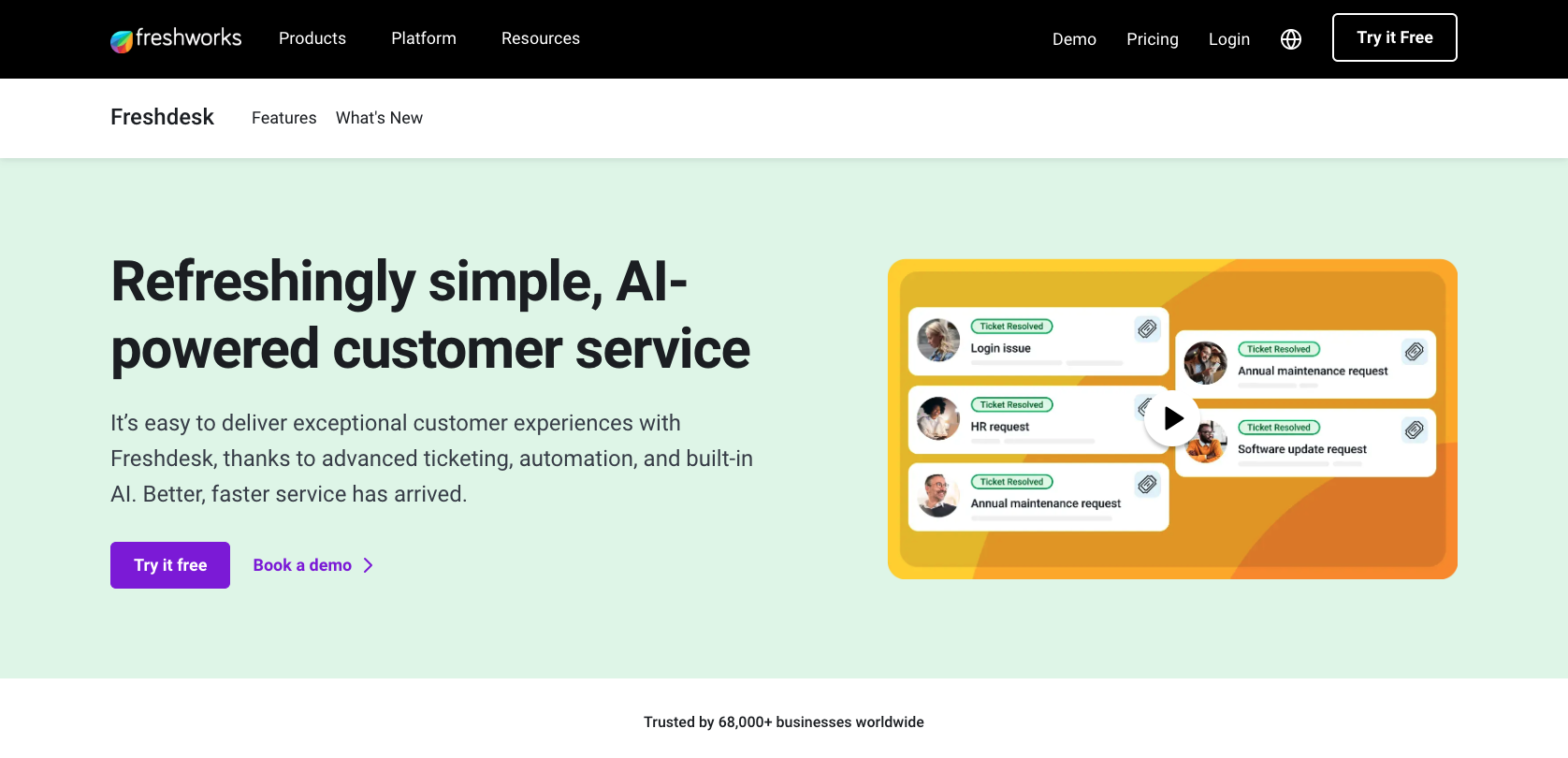
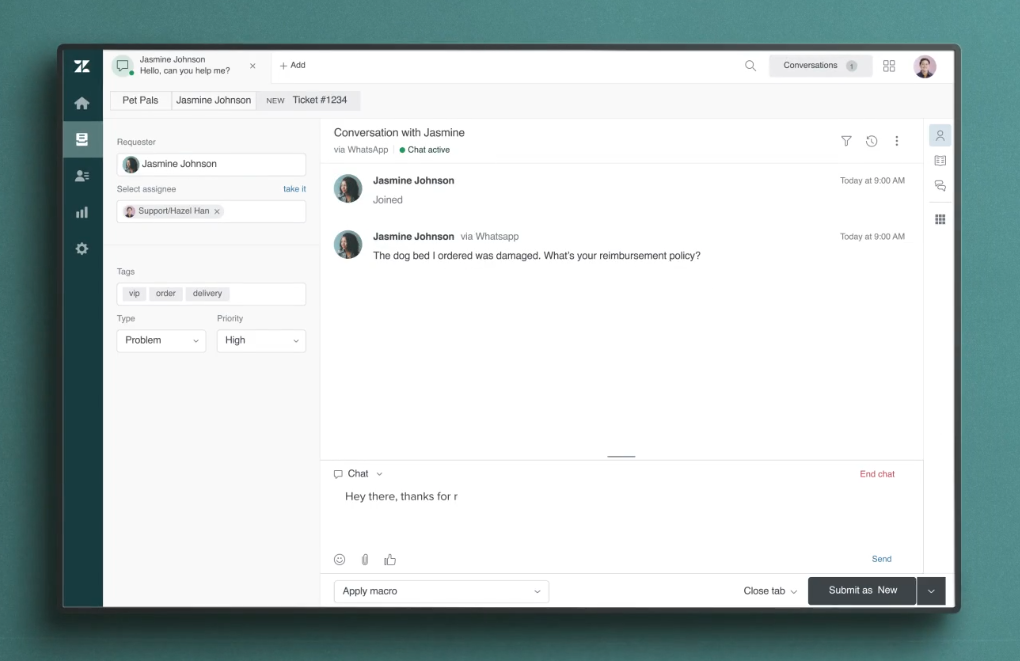
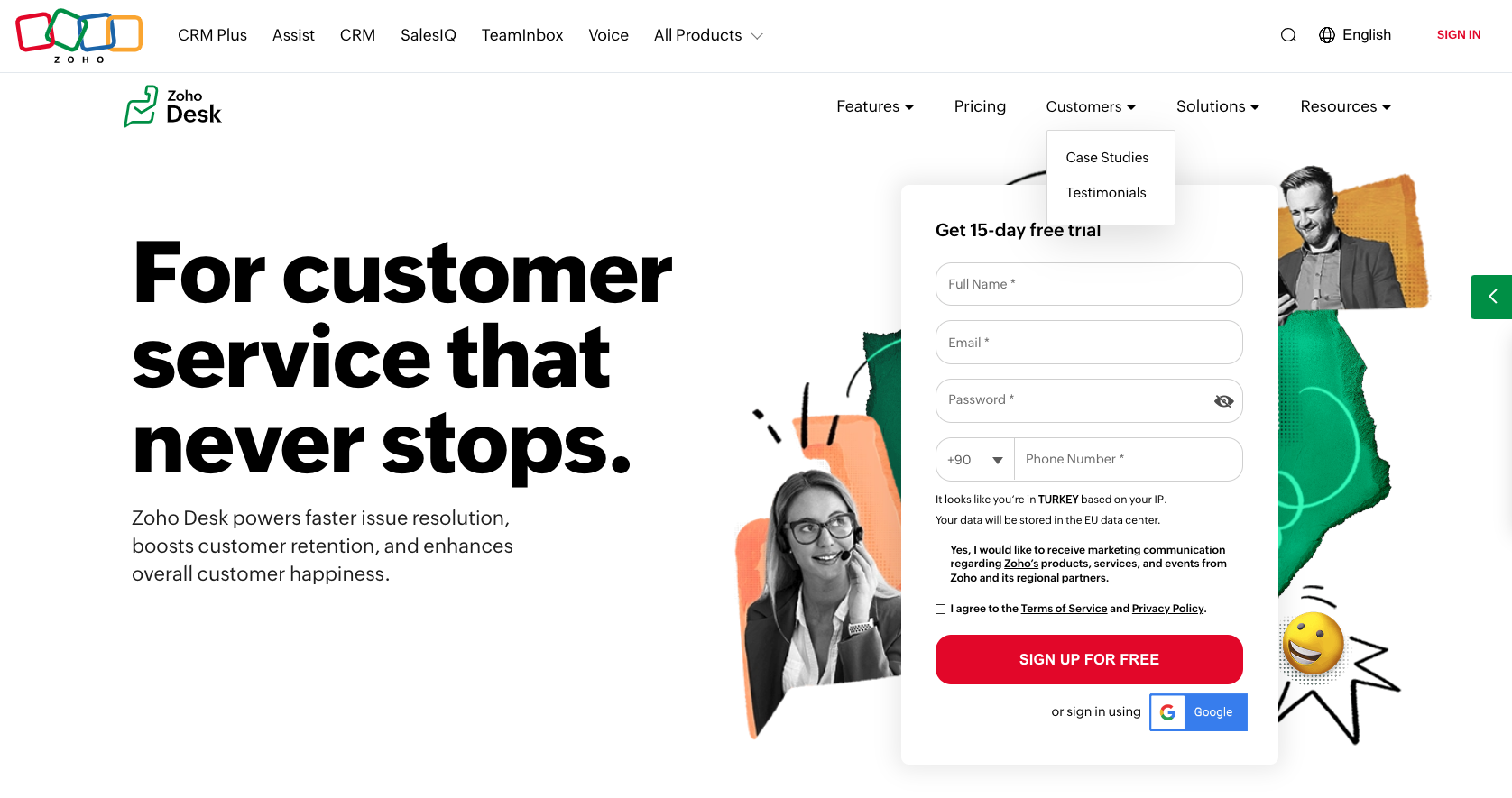
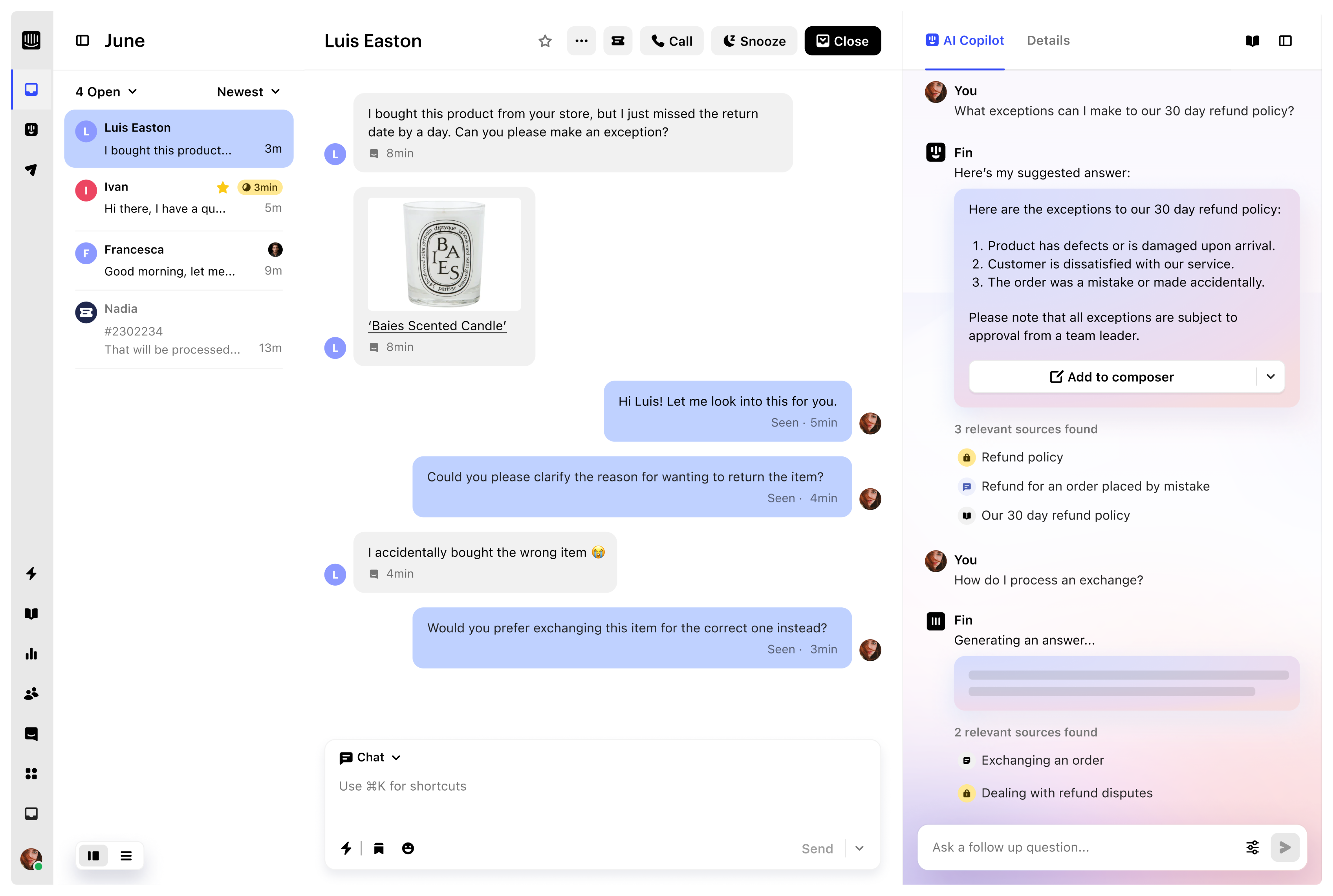
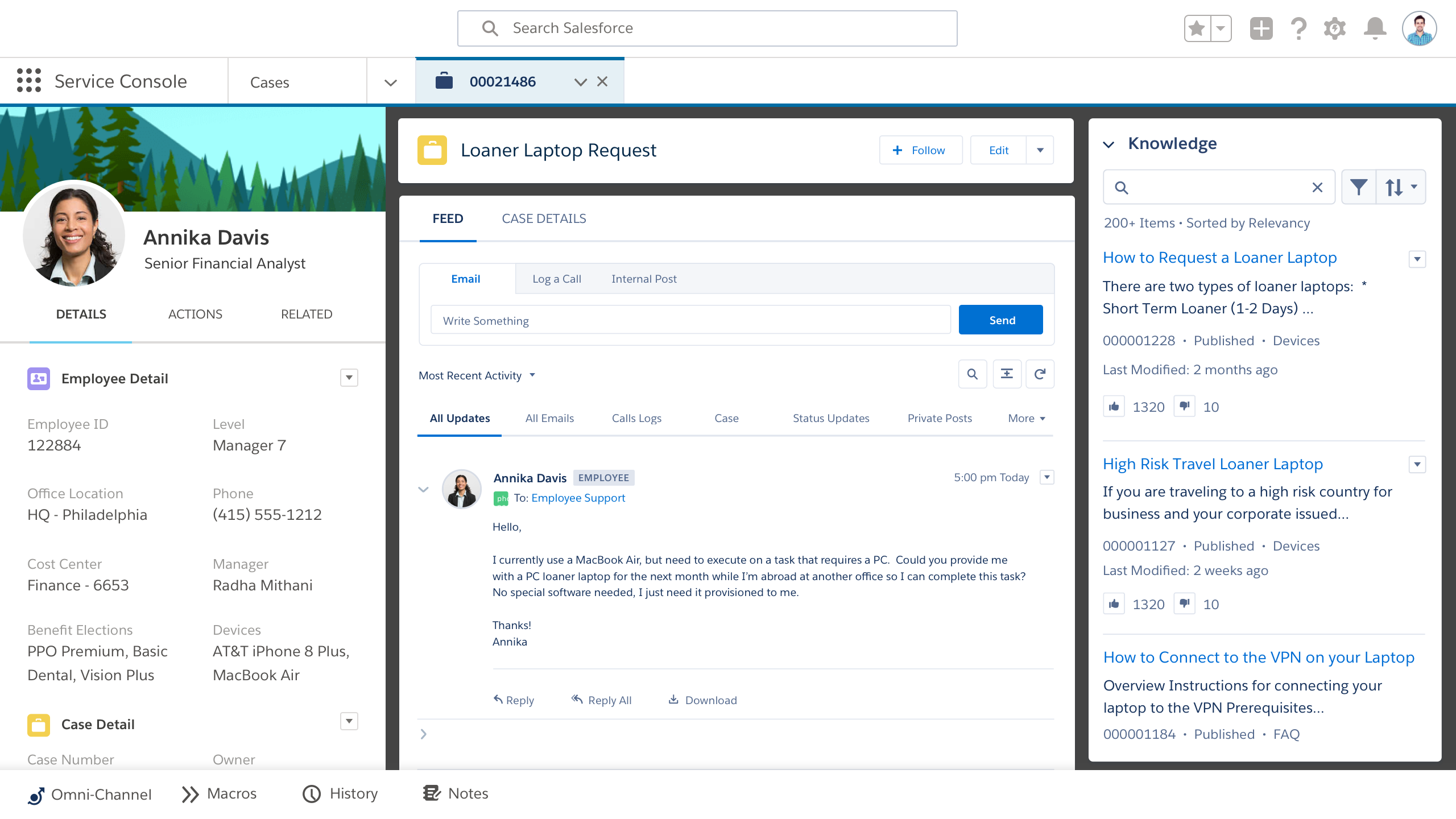
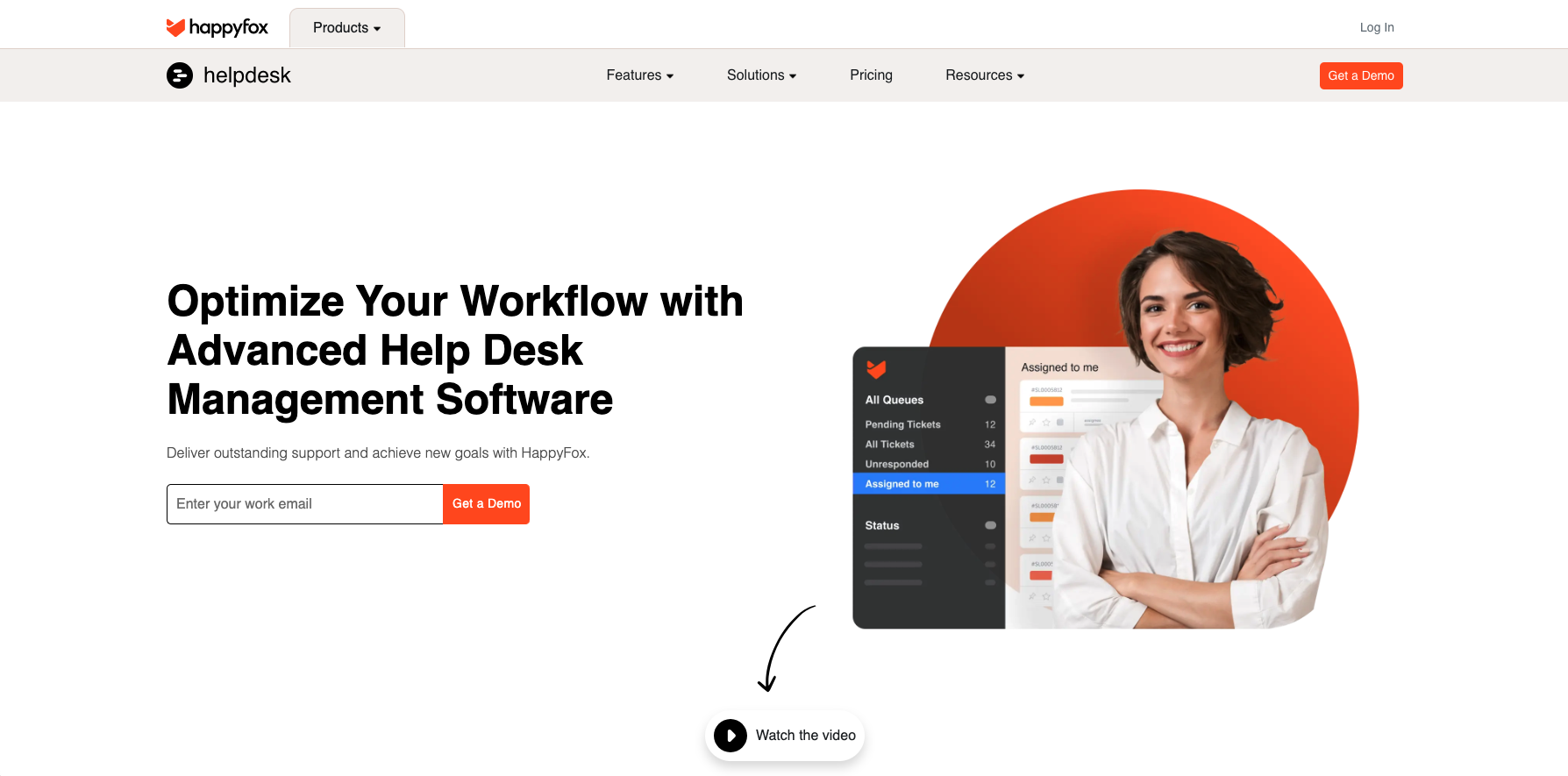
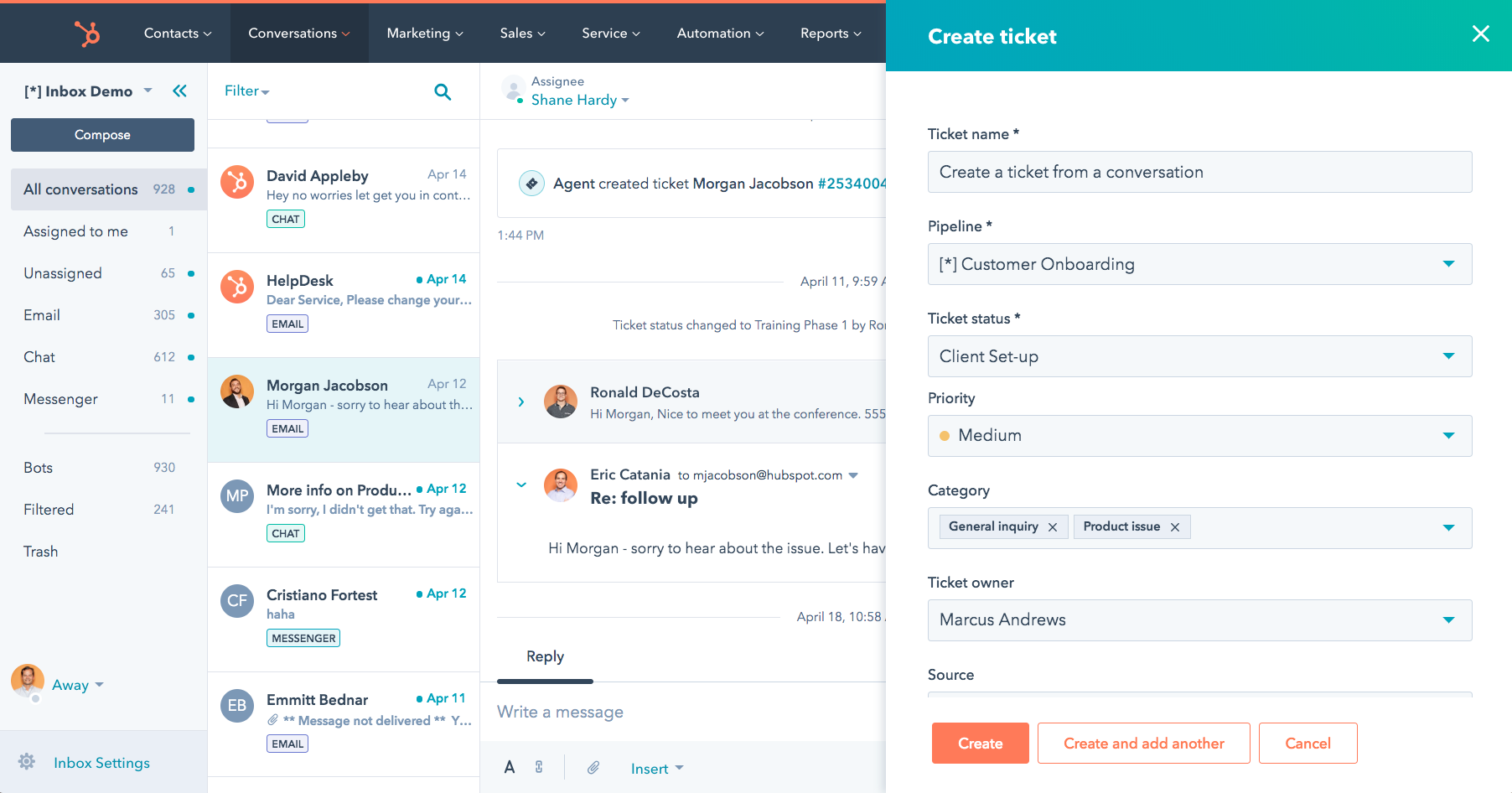
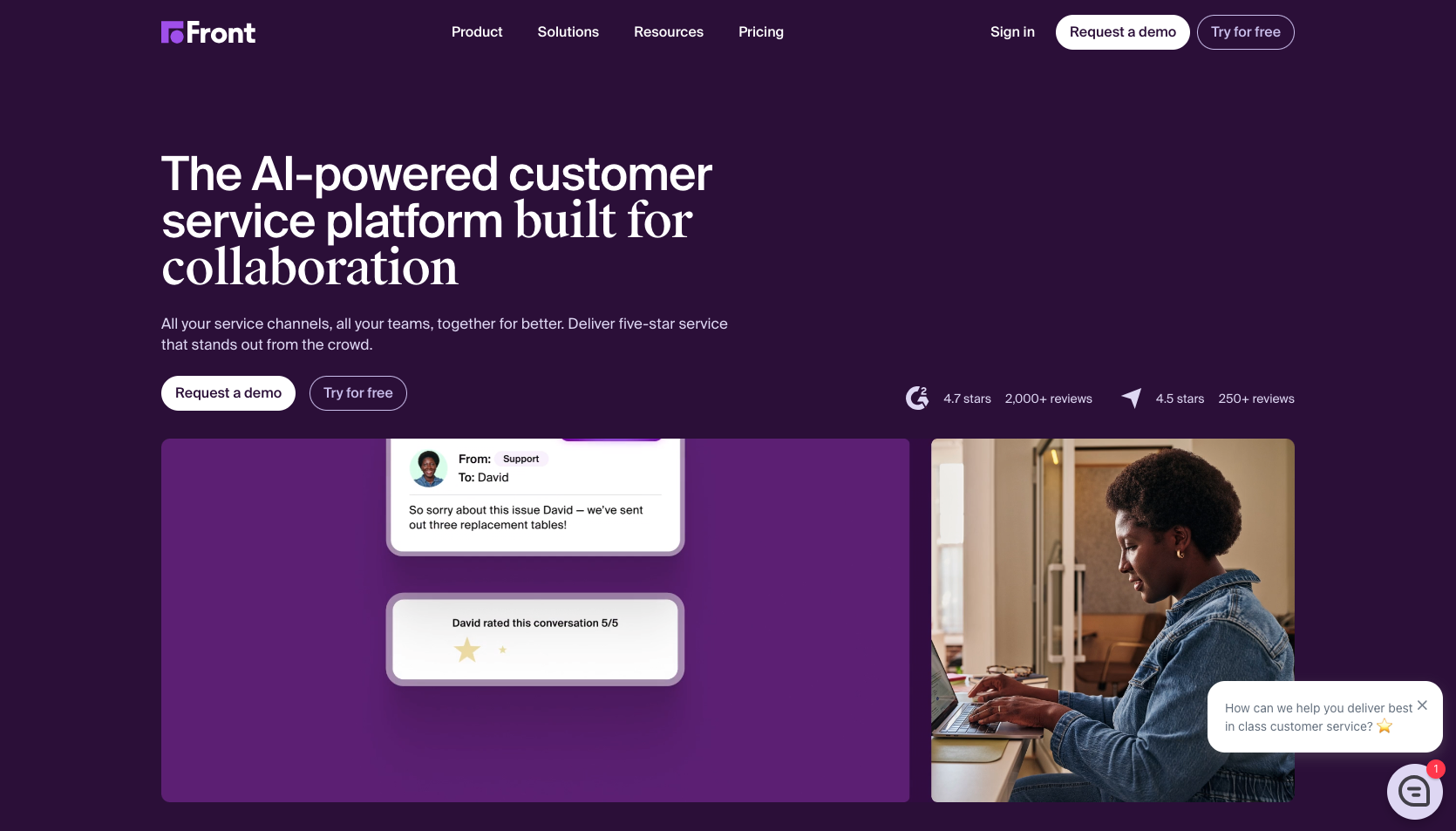
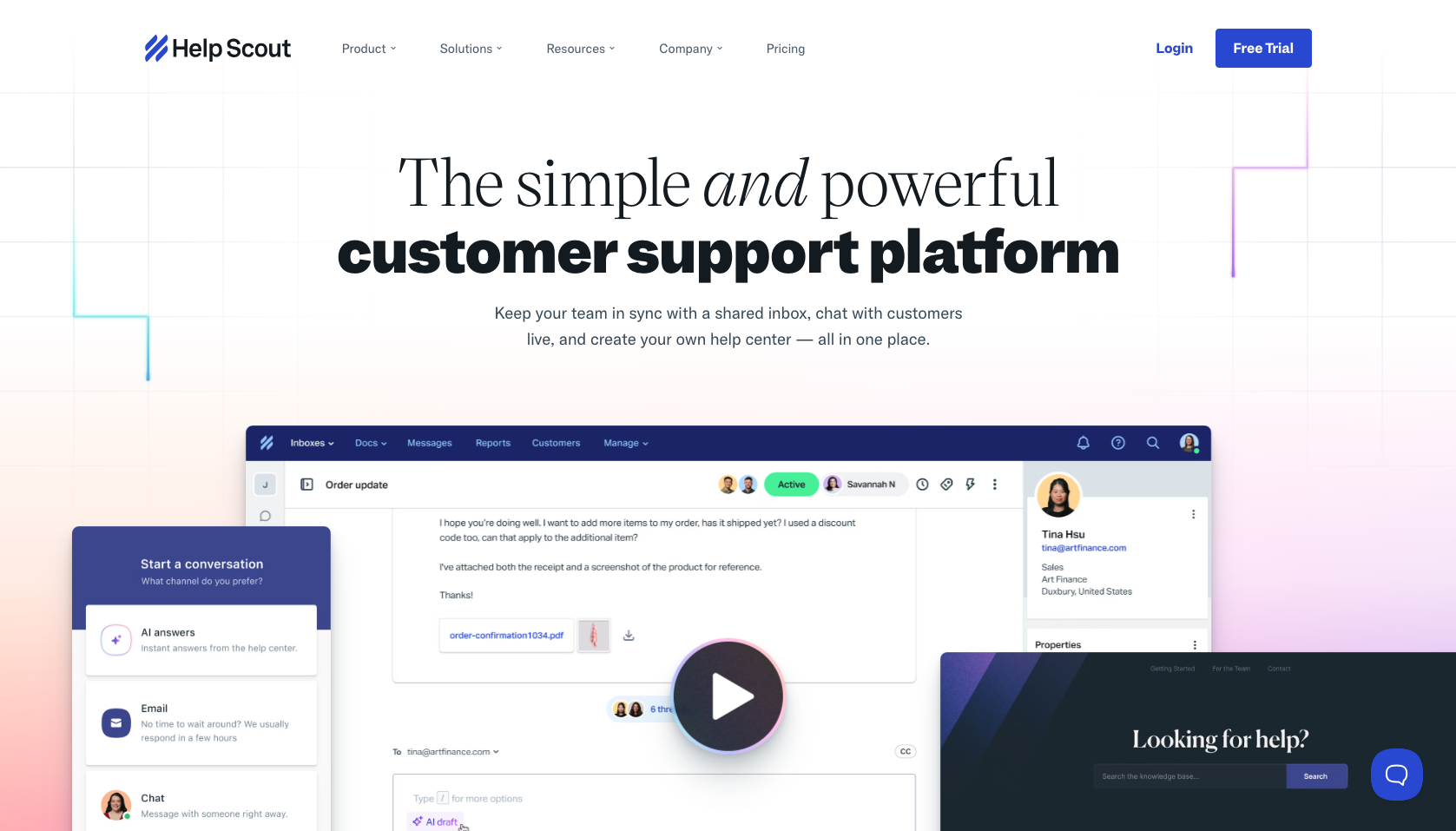
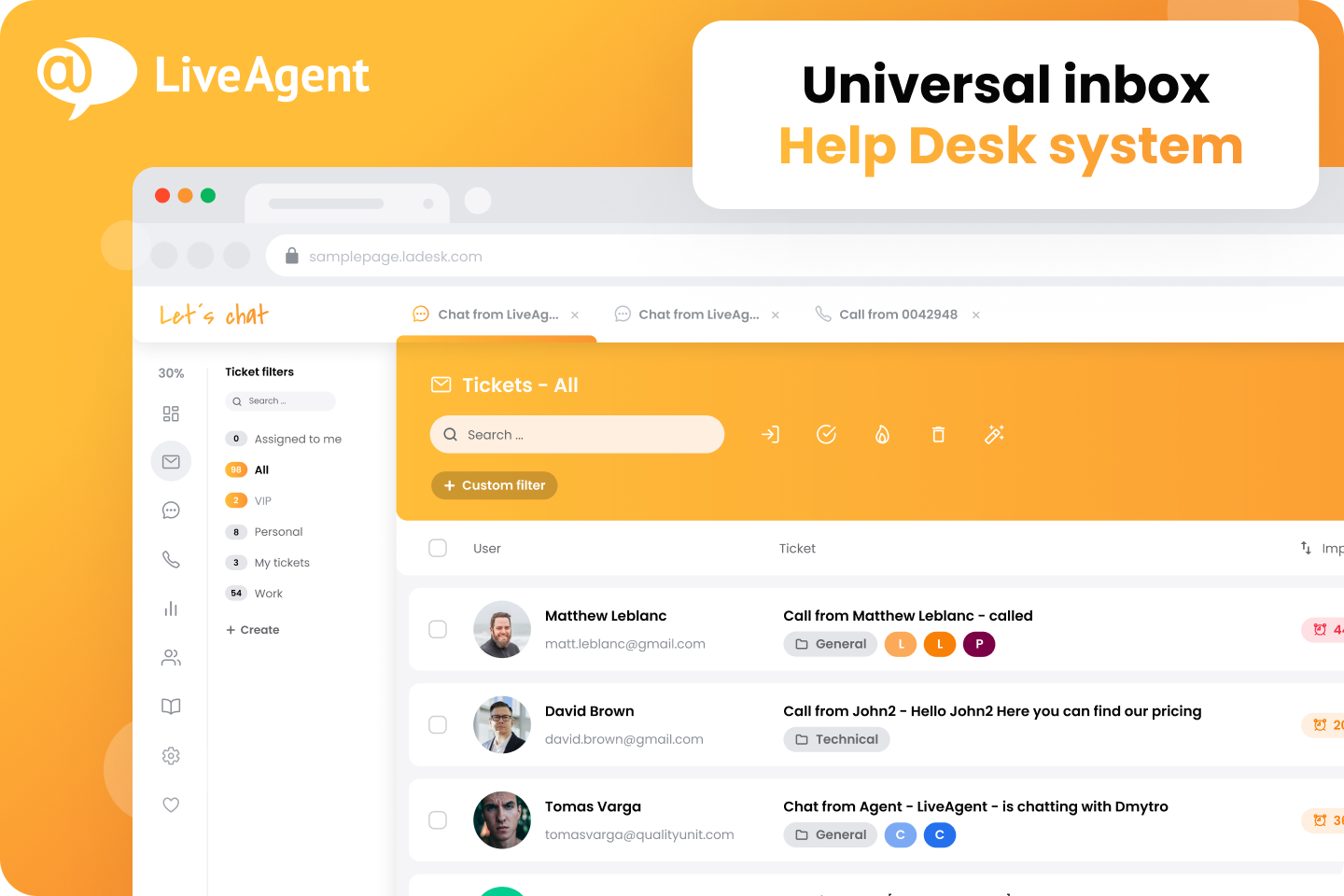
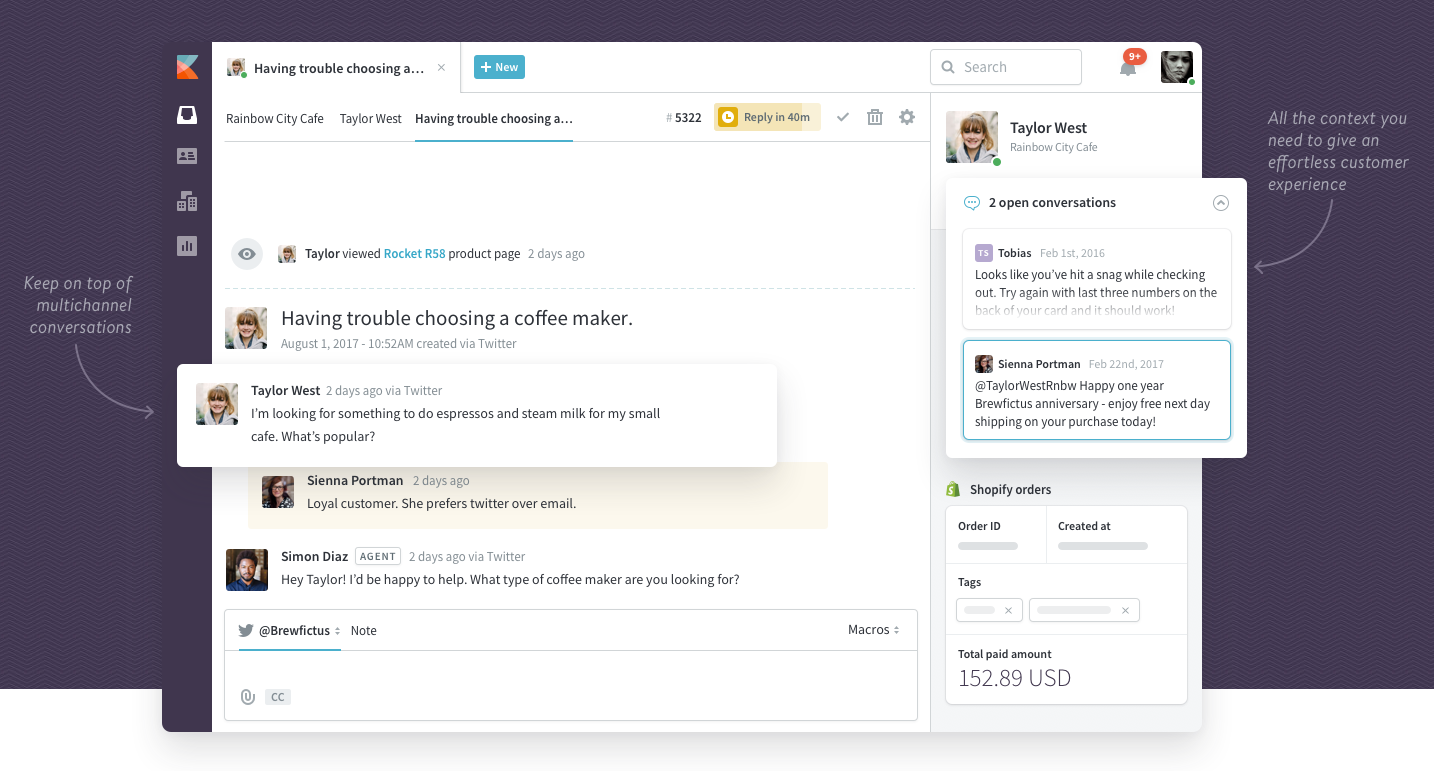
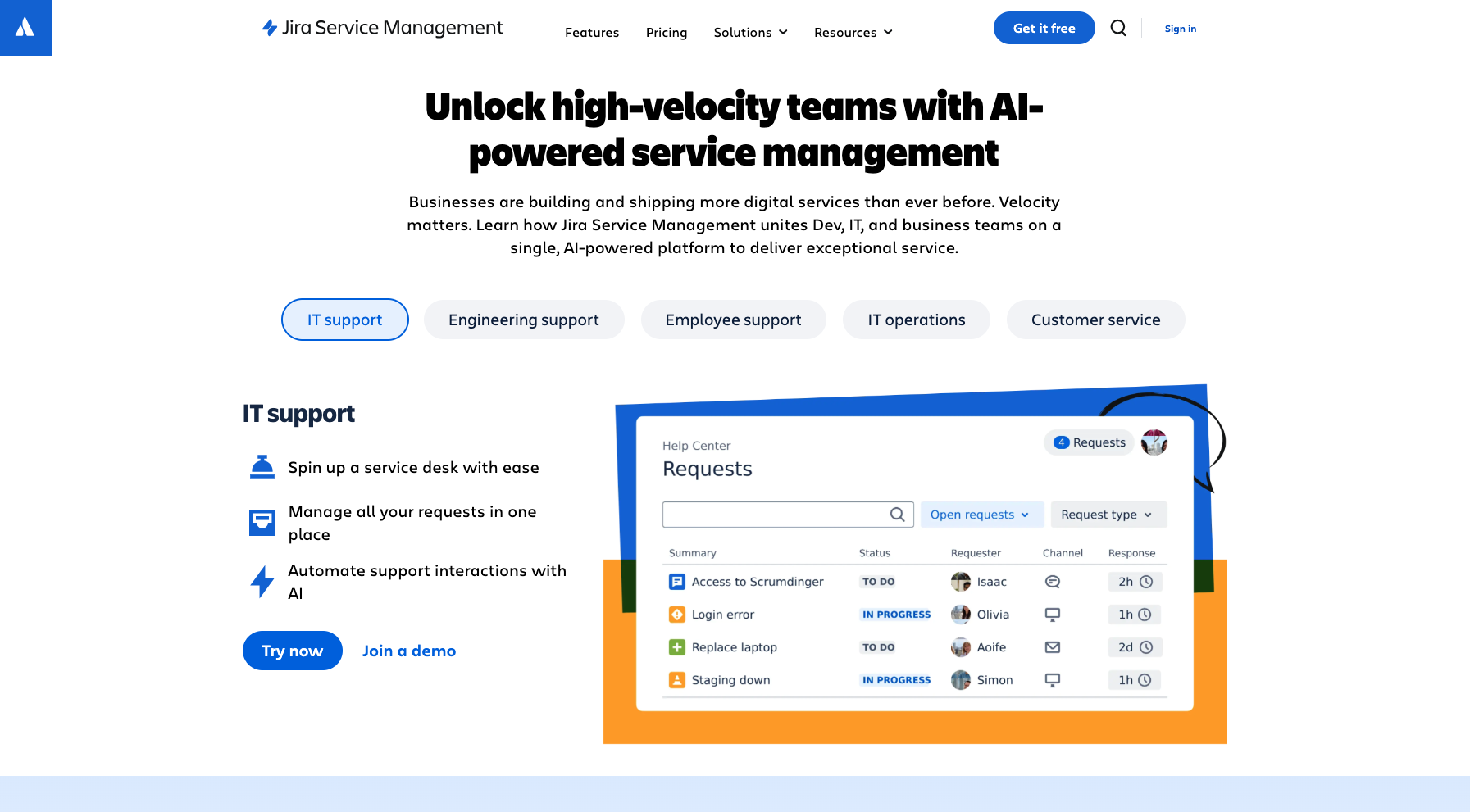















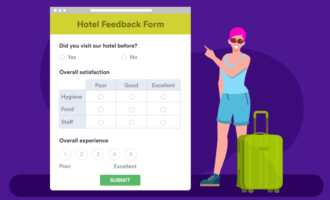




Send Comment: